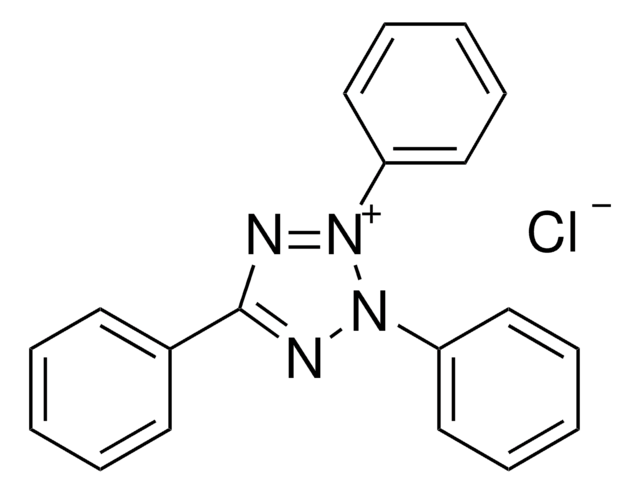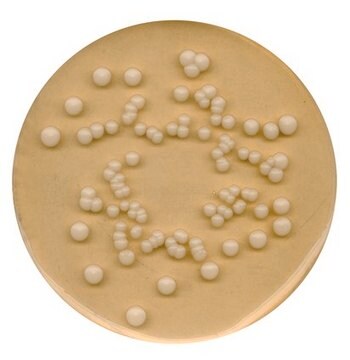24254
Trichloroethylene
≥99%
Synonyme(s) :
TCE, Trichloroéthène
About This Item
Produits recommandés
Densité de vapeur
4.5 (vs air)
Pression de vapeur
61 mmHg ( 20 °C)
Pureté
≥99%
Forme
liquid
Température d'inflammation spontanée
770 °F
Impuretés
≤0.003% non-volatile matter
≤0.02% water (Karl Fischer)
Indice de réfraction
n20/D 1.476 (lit.)
Point d'ébullition
86.7 °C (lit.)
Pf
−84.8 °C (lit.)
Densité
1.463 g/mL at 25 °C (lit.)
Chaîne SMILES
Cl\C=C(\Cl)Cl
InChI
1S/C2HCl3/c3-1-2(4)5/h1H
Clé InChI
XSTXAVWGXDQKEL-UHFFFAOYSA-N
Vous recherchez des produits similaires ? Visite Guide de comparaison des produits
Mention d'avertissement
Danger
Mentions de danger
Conseils de prudence
Classification des risques
Aquatic Chronic 3 - Carc. 1B - Eye Irrit. 2 - Muta. 2 - Skin Irrit. 2 - Skin Sens. 1B - STOT SE 3
Organes cibles
Central nervous system
Code de la classe de stockage
6.1D - Non-combustible acute toxic Cat.3 / toxic hazardous materials or hazardous materials causing chronic effects
Classe de danger pour l'eau (WGK)
WGK 3
Point d'éclair (°F)
closed cup - does not flash
Point d'éclair (°C)
closed cup - does not flash
Certificats d'analyse (COA)
Recherchez un Certificats d'analyse (COA) en saisissant le numéro de lot du produit. Les numéros de lot figurent sur l'étiquette du produit après les mots "Lot" ou "Batch".
Déjà en possession de ce produit ?
Retrouvez la documentation relative aux produits que vous avez récemment achetés dans la Bibliothèque de documents.
Notre équipe de scientifiques dispose d'une expérience dans tous les secteurs de la recherche, notamment en sciences de la vie, science des matériaux, synthèse chimique, chromatographie, analyse et dans de nombreux autres domaines..
Contacter notre Service technique






